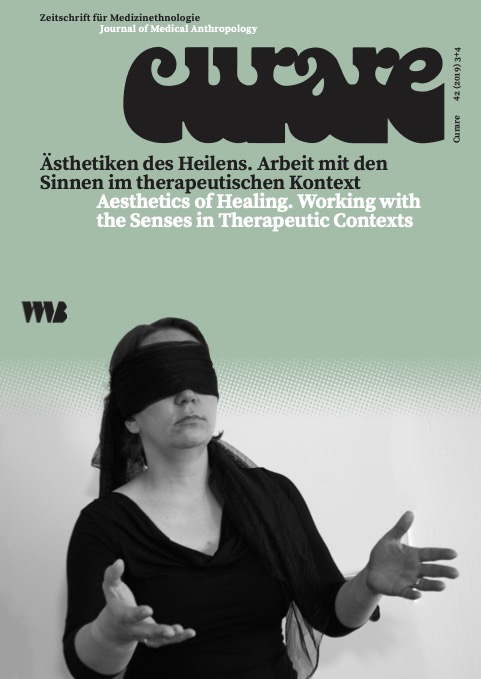Healing Efficacy and Subjectivity among Long-Term Residents in a Spiritist Asylum
DOI:
https://doi.org/10.60837/curare.v42i3-4.1609Keywords:
mental affliction, institutional order, therapeutic practices, subjectivity, spiritismAbstract
The article presents an ethnography of the social life of permanent residents interned in a Spiritist psychiatric hospital in the interior of the State of São Paulo (Brazil), focussing their participation in a “healing ritual” known as passe. It describes the ways of living and sociabilities that emerge in a compulsory daily routine, in order to identify agency and expressions of subjectivities and desires. Although they are in a hospital wing composed of individual residences, institutionalisation is a major characteristic of their lives, such that their histories often intertwine with a life in institutions. Their residential life is marked by a compulsory religious and medical routine that imposes a moral order on their actions. Through ethnographic research, we seek to understand their social practices that diverge from the normative order imposed by the hospital routine of enforced medications and participation in the Spiritist healing ritual of the passe. Rather than engaging in the ritual performance, these long-term residents resist through the enactment of alternative goals and desires. Long-term institutional experience and excessivemedication contribute to other subjectivities and goals within the walls of the institution and its mandatory rituals.
Downloads
Published
Issue
Section
License
Copyright (c) 2024 Curare. Journal of Medical Anthropology

This work is licensed under a Creative Commons Attribution-ShareAlike 4.0 International License.

